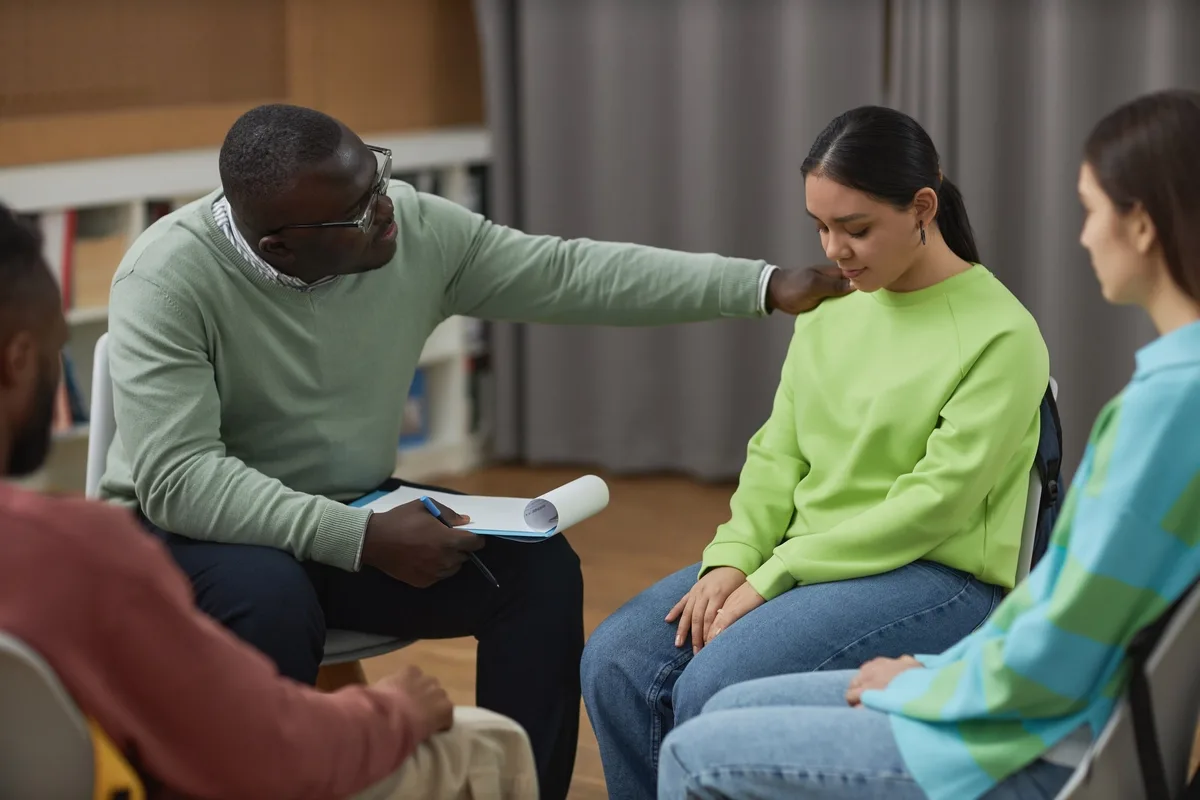24/7 Helpline:
(866) 899-221924/7 Helpline:
(866) 899-2219
Learn more about Intervention Services centers in Marshall County

Other Insurance Options

Cigna

Regence

WellPoint

Absolute Total Care

Kaiser Permanente

Self-pay options

Access to Recovery (ATR) Voucher

CareFirst

Oxford

Coventry Health Care

Health Choice

Optima

BlueShield
Beacon

Amerigroup

WellCare Health Plans

EmblemHealth

Premera

MHNNet Behavioral Health

Humana














AA – Alcoholics Anonymous
AA – Alcoholics Anonymous is a private rehab located in Gilbertsville, Kentucky. AA – Alcoholics Ano...






































